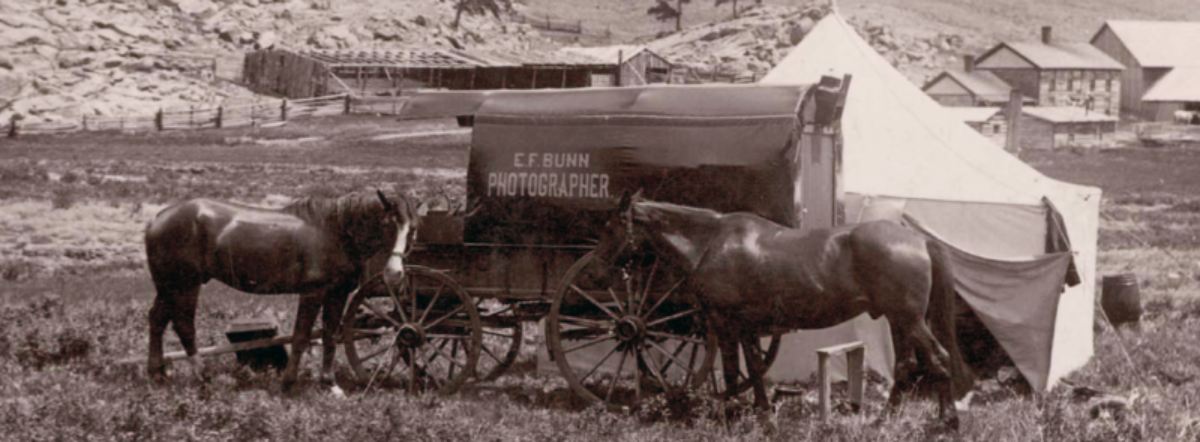Smallwood & Ball were listed as photographers in the 1876 Denver City Directory. Although no views were published under their combined names, the same stereoviews were often published under both Smallwood’s and Ball’s names.
William John Smallwood was born in St. Joseph, Missouri to William Jackson Smallwood and Mary “Polly” Fox Smallwood. In 1850, his father traveled to the Lake Tahoe area of California in search of gold. He appeared in California’s 1852 census and supposedly died shortly thereafter.
William Smallwood grew up in Knox County, Missouri. In the 1870 census, he is listed as a photographic artist. By 1873, Smallwood had moved to Denver, Colorado, where he worked as a dyer. In 1876, he formed a partnership with photographer George Ball. He made photographs south and west of Denver.

A few years later, Smallwood returned to Knox County, Missouri. He married Anna Amanda Roberts on June 4, 1882. They spent their married life on a farm, raising six children to adulthood. William Smallwood died on January 7, 1912, and is buried in Knox County’s Baker Cemetery.
George E. Ball was born in Ross, Herefordshire, England, around 1848. He worked as a photographer in England before immigrating to the United States in November 1874, where he settled in the Denver area. He was the junior partner in the photographic firm of Smallwood & Ball. In 1876, he opened his own gallery in Golden, Colorado, specializing in stereoviews. He exhibited his views at Boulder’s Mineral and Agricultural Fair of 1877.

By 1878, he was a popular resident of Golden, operating a lunch stand at the railroad depot. He organized a shooting club in the city and served as its president. Ball spent four months on a survey party for the southern portion of the Denver & Rio Grande railroad.
On January 18, 1881, the desirable bachelor married Miss J. M. A. Pearlburg in Golden. In July 1882, he sold his lunch counter and moved to a ranch in Middle Park, Colorado with his wife. The couple often wintered in Golden.
However, in the summer of 1886, George Ball’s life took an unexpected turn. Word from England revealed that while George had been living as a single man in the United States, he had a wife and three children in England. After George stopped writing home, his British wife assumed he had died in the United States. She took action to find him. In early 1886, an affidavit taken before a United States consul in Leeds, England, made by Elizabeth Ball, provided the details of their marriage.
The press reported that he could be arrested for bigamy or have a divorce brought against him by one or both of his wives. But, about two years later, George Ball surfaced in Alameda, California, as a photographer. He made portraits and a rare series of stereoviews with the mount “The New Series of Pacific Coast Views.”
In the fall of 1897, he left the Bay Area and headed to Sawyer’s Bay in Siskiyou County, California, where he had a placer claim. Further details about his life have not been uncovered.
Thank you to: W. G. Eloe; Krista N. Hanley; Jori Johnston and Aaron Marcus, History Colorado; and Beverly W. Brannan.
